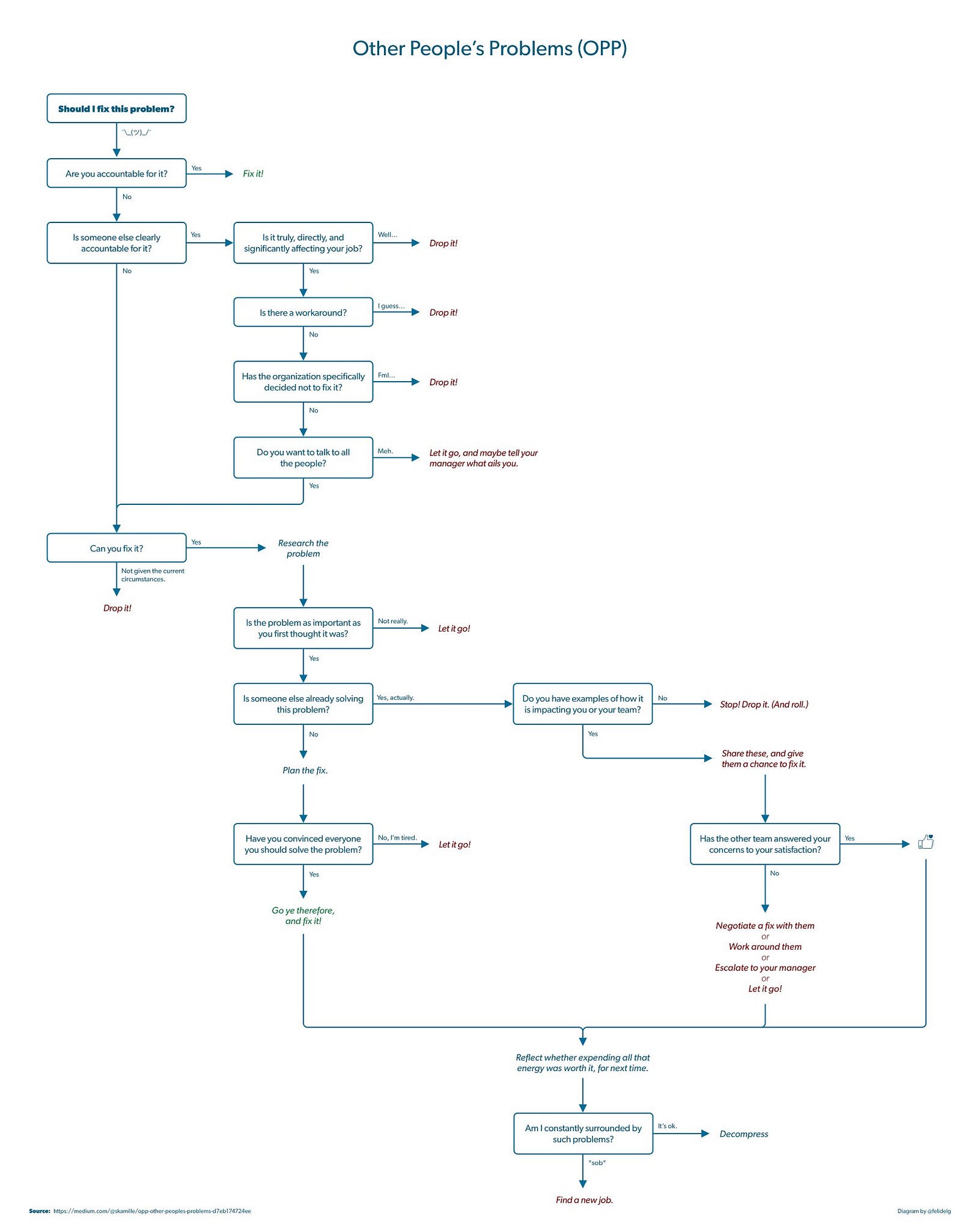OPP §

- Author: Camille Fournier
- Full Title: OPP
- Document Note: The text explains how to identify and address problems that are not directly related to one’s job, but still affect it. It emphasizes the importance of understanding who owns the problem and gathering feedback from other people before formulating a plan to fix it. It also cautions against trying to fix too many problems, as this can be overwhelming and may be a sign that it is time to find a new job.
- URL: https://www.elidedbranches.com/2019/05/opp-other-peoples-problems.html
Highlights §
- When I got into management, I figured that I would have the power to make things right. Then I thought that when I became the leader of all of engineering I could do it. Then I thought that when I became an executive I would be able to do it. Chasing that dream of being able to fix all the things contributed to me feeling exhausted, and dare I say a bit burned out, (View Highlight)
- Assuming that you are not a founder, you should just take a minute to really let it sink in: there is no place you can go where you can control everything and fix all the problems, no matter how much you get promoted. There’s always going to be something you can’t fix. (View Highlight)
- If you don’t clearly own the problem, you need to talk to people. If you feel tired by the idea of talking to all people, stop! This is a sign that you should not pick this battle! It’s already draining you and you haven’t even started on the path to addressing it. (View Highlight)
- If you’re ok with talking to all the people, then get out there and get a sense of the problem beyond you and your team. You can do this formally, with a document that you prepare addressing the problem as you see it, or informally, as a series of user interviews. You will need this information to make a case to fix it, and to make a plan for how to fix it. (View Highlight)
- If you know who should own this, you need to give them a chance to fix it. Which means you need to come with examples of how (View Highlight)
- Ok so you talked to all the people and the problem is still not fixed. Assuming no one owns the problem and you really still want to own it and fix it, great. Make a concrete plan for how you will fix it, and share that plan with the people who need to know about it. (View Highlight)
- Learning how to pick your battles is also about learning how to pick your company and pick your boss, because your job really shouldn’t be all or even mostly about battles. (View Highlight)
- Going through this exercise of solving an unowned problem is fun once in a while, but it’s a real drag when you feel like you’re surrounded by such problems, you can’t ignore them, and you’re powerless to fix them. That is a good sign that it’s time to find a new job, preferably somewhere that is more in tune with your way of doing things (View Highlight)
 (View Highlight)
(View Highlight) (View Highlight)
(View Highlight)
 (View Highlight)
(View Highlight) (View Highlight)
(View Highlight)